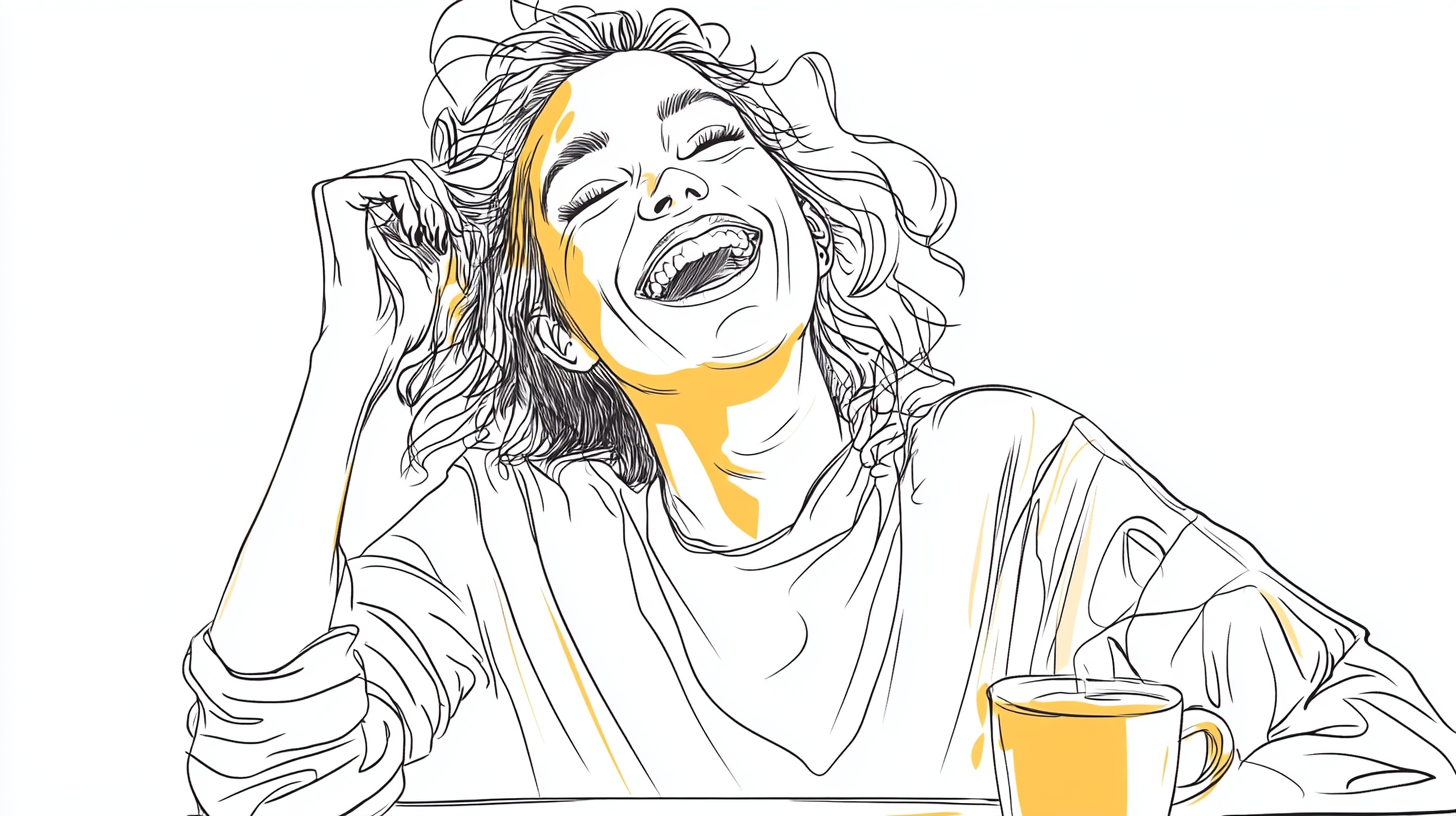The Glacial Pace of Healing from burnout
Image: A woman laughs over coffee, surprised at the sound of her own unexpected joy.
It was the snort-laugh that erupted without warning over lunch—foreign, shocking, and wonderfully mine. After six months of recovery that seemed to go nowhere, this unexpected burst of joy revealed the truth: healing had been happening beneath the surface all along.
If burnout dismantles you through a thousand tiny surrenders, recovery rebuilds you through a thousand imperceptible shifts. The progress is glacial, but it's still moving mountains.
My story illustrates this truth in ways that stats and clinical descriptions possibly can’t. As someone known for razor-sharp focus and boundless energy, no one—least of all myself—could have predicted how long my road back from burnout would be.
When I first realised I was burnt out, I expected recovery would be straightforward: take some time off, rest, and bounce back - simple. Six months later, I found myself sitting at my kitchen table, tears of frustration streaming down my face.
"I've done everything right," I told my mate over the phone. "I've been sleeping more, seeing a therapist, walking a little every day, making sure I connect with the people-even a simple text. But I still feel hollow inside. What if I never get better?"
What I didn't realise was that healing from burnout happens beneath the surface long before it becomes visible. Recovery is like finding your way through an ancient labyrinth—from the outside, it appears you're walking in circles, making no progress. But each small turn is actually bringing you closer to the centre, where healing waits.
Research shows that while some recover from mild burnout within months, in many instances it can take a year or longer - even up to four years. The invisibility of progress makes burnout recovery uniquely challenging.
For me, progress finally revealed itself in subtle ways that reminded me I was indeed moving forward, even when the path seemed endless:
The Morning I Didn't Dread: After months of waking with a sense of heaviness, I opened my eyes one Tuesday and felt... nothing. Not joy, not energy—just an absence of dread. It was so unremarkable I almost missed it.
The Argument That Didn't Matter: Criticism that would have once sent me spiralling for days barely registered. I went through it, acknowledged it, and somehow it didn't become the centre of my universe.
The Forgotten Workout: Midway through a workout, I realised I'd been moving my body without negotiating with myself or promising rewards afterwards. My body had remembered how to move for pleasure.
The Spontaneous Laugh: That pivotal moment over lunch wasn't isolated. In the weeks that followed, my laughter became less foreign, appearing unexpectedly during phone calls, while watching silly videos, laughing at myself. Each time it happened it required less explanation. It was part of who I was becoming rather than evidence of who I'd lost.
The Boring Book: I put down a novel halfway through because it wasn't engaging me—not because I couldn't focus, but because I actually had preferences again.
Small, consistent actions created these shifts. A daily five-minute meditation or breathing exercise. Walking outside regardless of weather. Saying no to one optional commitment each week. None of these actions felt significant in the moment, but together they formed the invisible foundation of my recovery.
The brain requires time to create new neural pathways that support healthier responses to stress. Energy reserves need space to gradually replenish after being depleted for too long. These processes can't be rushed, just as a wilted houseplant can't be coaxed back to health by doubling its water or moving it frantically from window to window. The plant needs consistent care, appropriate light, and most importantly—time.
As the months passed, my recovery became something more nuanced—a new relationship with myself and my energy. Some capacities remained changed (I still can’t sit in a chair for more than an hour at a time), serving as reminders of what had happened. New strengths appeared in unexpected areas—resiliences I hadn't intentionally cultivated but found valuable nonetheless.
My burnout recovery continues to unfold beyond the neat conclusions we expect from stories. The darkness still creeps back in some days. The labyrinth occasionally shifts and rearranges itself overnight. Yet now I understand that progress is seen in ordinary moments that pass without fanfare.
The true measures of healing come as mornings without dread, breaths taken slowly, boundaries held firmly. Through this journey, I have become someone new who recognises that profound transformations happen at a glacial pace, one imperceptible shift at a time.
And sometimes—just sometimes—I find myself smiling at how far I've come. 😊
